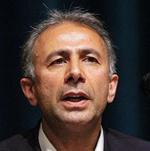Incompatibility Is the Problem

No one can deny that Iran’s nuclear activities are transparent and
open to investigation. Iran has in fact observed the concerns and
demands of Five plus One members, addressed in Geneva talks in
November 2009. So far, Iran has taken every step which could lead to
trust-building and even accepted to exchange its low-enriched uranium
stockpile with nuclear fuel.
Iran has demonstrated that within the legal IAEA framework, it is
determined to continue enrichment and will move in this path non-stop.
Meanwhile, it has proved open to investigations in order to increase
transparency. Iran’s intentions for production of enriched uranium
leave no place for ambiguity.
However, Americans prefer to look at Iran’s nuclear case from another
angle. For them, UNSC resolutions and IAEA Board of Governors’ reports
are far more important, documents which all insist that Iran halt all
its enrichment activities. Nevertheless, it is clear that this nuclear
impasse could not be broken by these intermittent Security Council
resolutions. Iran stands firm on the principle that based on IAEA
charter it has all the rights to enrich uranium and within this
process it has productively cooperated with IAEA and other
international organizations. The Geneva talks were in fact a detour to
avoid ineffective procedures of the United Nations. Iran showed a
significant trust-building turn in Geneva negotiations: it agreed to
send its enriched uranium stockpile to Western countries in return for
nuclear fuel for its research reactor.
However, Iran’s cooperation fell short of persuading Western powers,
particularly Americans, to stop the resolution mechanism. In their
diplomatic behavior, Americans never set aside pressure lever even
when reconciliation seems at reach. They keep it for use at the best
situation. The current atmosphere created around Iran’s nuclear
program should be interpreted with this American diplomatic trait in
mind. This diplomatic pattern is in contradiction with the essence of
Geneva negotiations, in which US representative Bill Burns even
discussed other regional and global issues with senior Iranian
negotiator Said Jalili. And all these happen while Iran has expressed
its readiness for a fuel swap, in order to increase transparency and
build further trust with the international community.
On the other hand, Americans seem to enjoy ‘pressure diplomacy’. This
makes agreement more and more difficult. The latest IAEA report which
addresses ambiguities in Iran’s nuclear program just makes the
situation worse. Referring Iran’s dossier to UNSC and asking for
another round of negotiations now seem just paradoxical.

